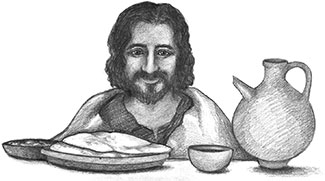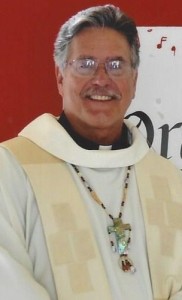Sunday’s Readings: Deuteronomy 4:1-2, 6-8; Psalms 15:2-3, 3-4, 4-5; James 1:17-18, 21b-22, 27; Mark 7:1-8, 14-15, 21-23
……from your Pastor’s Desk
History is not the past: it is the present looking at the past. By placing the Pharisees before our eyes in so many readings the Liturgy today is clearly calling us to see ourselves in them.
Like them, we know that it is much easier to deal with outer, visible things than with the inner world of attitudes: with the heart. And so, like them, we tend to evaluate ourselves and others in purely external ways: the number of prayers we recite, the amount of money we give, etc. There is nothing wrong with external things, but there is also an inner world that shapes and gives meaning to the external.
When we make religion a ‘business’ we turn the inner spirit into an external ‘thing’.
The German philosopher, Hegel, one of the most influential thinkers of the 19th century, wrote:
“The Holy as a mere thing has the character of externality; thus it is capable of being taken possession of by another to my exclusion; it may come into an alien hand, since the process of appropriating it is not one that takes place in the Spirit…. The highest of human blessings is thus thought to be in the hands of others.”
This was not written about the historical Pharisees, but about Christians who developed a similar attitude to theirs. It is difficult to retain a clear vision of the Gospel: that “God is Spirit, and those who worship Him should worship in spirit and in truth (John 4:24)”. We are forever in danger of stepping into the shoes of the Pharisees.
What the Pharisees lacked in spectacular fashion was any kind of interiority or depth; their minds were turned outwards, to rules and casuistry.
What matters, Jesus said, is not what goes into a person from the outside, but what comes out from the inside. Religion is not about things; it is about you! It is about the kind of response you make to the world, to others, and to God. It is about whether that wonderful ‘chemistry’ of the Gospel is happening in you: the kind of ‘chemistry’ that can turn bad stuff into good, curses into blessings, suffering into prayer.

The Spirit of faith is hard to keep in sight at all times, yet it is meant for all times. It is the most sublime wisdom, yet it is meant to be very practical and not just a philosophy, a way of thinking. One way to make these ends meet is to not only identify religion with visible practices. This is what the Pharisees and others did in the time of Jesus, and it is a constant temptation for ourselves.
Fr. Ron

